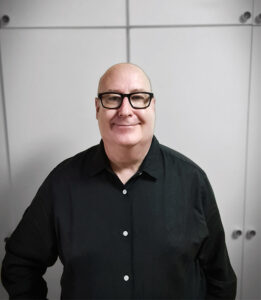News
お知らせ
YMCA ACT
Daniel's interview
How did you come to Japan?
Before coming to Japan I spent a couple of years in Russia, finishing my Master's degree. I was tired and wanted a change, so I decided to come here to work for one or two years. That was 26 years ago!
How did you become an English teacher?
I did of bit teaching when I was younger in Canada and Russia and found that it was something I enjoyed. I began to think of teaching as my career and was happy with that because it's a very rewarding job.
What led you to the YMCA?
In 1997 I was looking for a job. My neighbour was working at the YMCA and he suggested I apply there. There was a lot of teaching work available in those days and jobs were easy to find, but I decided to accept the YMCA's offer because It was a place where I could develop my teaching skills. Most of the teachers working there at the time were much more experienced than I was and I learned a lot from them. Also, the YMCA was different from other language schools. I had previously worked in a chain school that required teachers to follow a very narrow curriculum. It was frustrating because we couldn't teach anything that wasn't on the menu and I felt that the students weren't getting much for their money. The YMCA had a much more flexible curriculum that allowed me to broaden my teaching methods and learn what teaching was really about.
What do Japanese students need to communicate in English?
They need to feel confident. The YMCA is good for this because our students tend to stay in the same classes for a long time. They can build a relationship with their classmates and become comfortable speaking out, even if they make mistakes.
How do you want your students to become?
I want my students to feel part of a wider world. Learning a language can do a lot to expand our horizons and make us realise that we share the world with other peoples. I know that a lot of our students come to the YMCA looking for a different perspective.
What are you trying to be careful of the most in teaching?
I take care that all the students in my classes feel included. Every class has a variety of personalities, and it's the job of the teacher to make sure that everyone works together and feels good about their lessons.
I also want my students to notice the progress they're making. Sometimes they don't feel that their English is getting any better, even though it is. I always point out where they've improved or when they've done especially well in a lesson.
What are your strengths as English teacher?
I think my main strength is that I really love language, so I take great pleasure in teaching and discussing all aspects of grammar, vocabulary, and so forth. When the teacher is enthusiastic, the students are more engaged, so I hope my students feel that way.
My other strength is that I like to laugh. A sense of humour is important in the classroom because when a class takes things too seriously, the students become more self-conscious and stop communicating. Our lessons should be fun.
Daniel先生担当クラス
<英会話>
・IHE1 (木) 19:20-21:00
・PSM(土)10:00-11:40 月2回
<スペシャルクラス>
・English literature (木) 13:00-14:40 月2回 Zoomオンライン
・International Topics (土)13:00-14:40
・プレゼンテーションの極意と実践(土)15:00-16:40 月1回
その他
・プライベートレッスン

